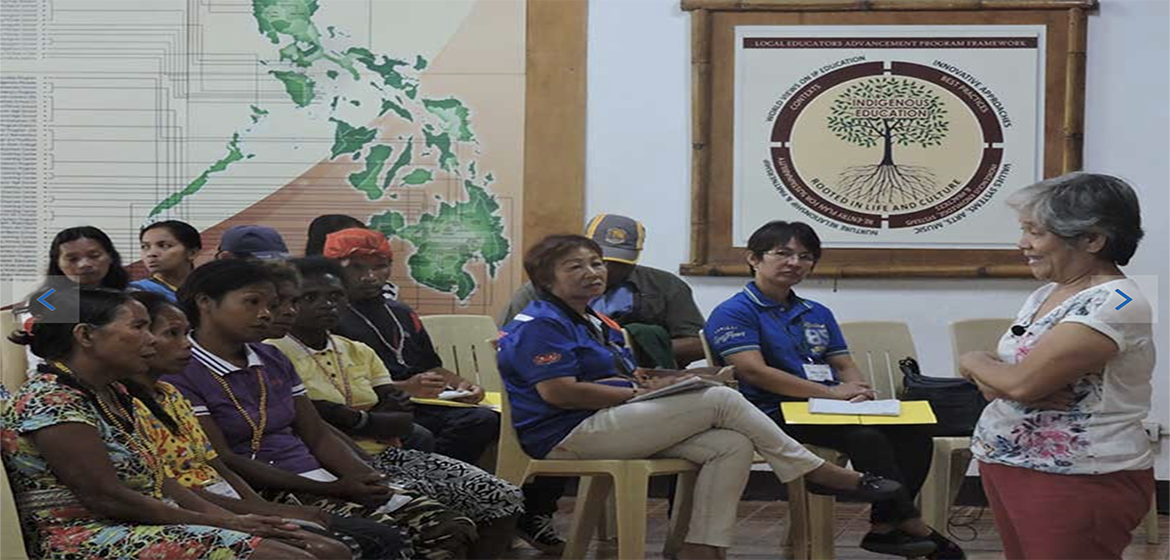Ennie P. Arado
OUT of the 25 million Filipinos recorded to be living a lifestyle considered poor, 1.5 million of these are considered to be at extreme poverty. This number had recently increased to 1.7 million. This is according to a research and data that Assisi Development Foundation (ADF) had went through with the intention of helping decrease poverty in the country one marginalized sector at a time.
ADF is a non-profit organization that had been organizing different programs and trainings with the goals of providing the “marginalized with innovative and relevant programs and services to contribute to a society of faith and love; equity and justice.”
Last Saturday, November 10, they conducted their second phase of the Leadership Training on Integrative Health for Indigenous Peoples at the University of the Southeastern Philippines Mintal Campus. The first part of the leadership training was done April of this year which was attended also by barangay health workers, nurses, doctors, and other members of the Indigenous Peoples (IP) community in different parts of the country.
Participants from Luzon were specifically from Conner, Apayao; Capas, Tarlac; San Jose, Antipolo, Rizal; Naujan, Oriental Mindoro; Sablayan, Occidental Mindoro; and Puerto Princesa, Palawan. There were also participants from Jordan, Guimaras; and Himamaylan, Negros Occidental in Visayas. Most of the participants were from Mindanao specifically from Marilog District, Davao City; Kitaotao, Bukidnon; Dumingag, Zamboanga del Sur; Siayan, Zamboanga del Norte; Zamboanga City; Lanuza, Surigao del Sur; Cortes, Surigao del Sur; San Miguel, Surigao del Sur; Arakan, North Cotabato; Carmen, North Cotabato; North Upi, Maguindanao; South Upi, Maguindanao; and Gawasan, North Cotabato.
According to ADF President Benjamin Abadiano the leadership training is under their 15-year Zero Extreme Poverty program which they started in 2015. Around this time, they noticed a specific pattern in the Filipinos’ health and child mortality rate which pushed them to start with health-related programs such as this training on integrative health for the IPs.
“The Philippines then could not pass the millennium development goals. One of the things that the government before had trouble addressing was the increasing child mortality rate. Many poor children die. Research was done and we found out that around 1.7 million Filipinos are considered extremely poor. That’s why we’re looking for 1million families so we can help them because we also found out that a big chunk of this 1.7 million are IPs,” said Abadiano.
Because of this they made sure that their programs and integrative health trainings would integrate modern healing to the traditional healing of the IPs. He added they learned that the impact of these trainings and learning for the community is more feasible when they integrated and acknowledged the value of the traditional knowledge, systems, and practices of healing being used by the IPs.
Some of these indigenous knowledge on healing include herbal medicines, acupressure, acupuncture, and hilot among others.
“These are ancient practices that have been used by early Filipinos and Asians. They had been practicing that and it had been proven effective,” said Abadiano.
The entire leadership training was a 3-day activity wherein the participants were shown how to make herbal soap and to do proper acupressure.
Last Saturday as well, they discussed where they left off last April during the first phase. They discussed their health-related short-term, midterm, and long-term plans for the community including installation of potable water, day care centers, health centers, public restrooms, birthing clinics, and other similar facilities.
ADF is driven to guide them not only with physical wellness but as well as social, emotional, intellectual, occupational, cultural, environmental, and spiritual.
With this wide scope of wellness for a better living for these IPs, the participants’ goals for their respective communities also stem to as far as scholarship programs for midwife, nurses, and doctor IPs, construction of churches, evacuation centers, and to creating modules and training references wherein traditional and modern healing practices will be well-integrated and implemented.
“For these projects to be sustainable, we look at how to develop the ancestral domain. That’s why before we start a program, we have a workshop called participatory visioning. In that exercise, they are encouraged to look at what may happen in the future especially if they are the only ones left to fend for their land,” Abadiano said.
Source: SunStar
Related to SDG 3: Good health and well-being



